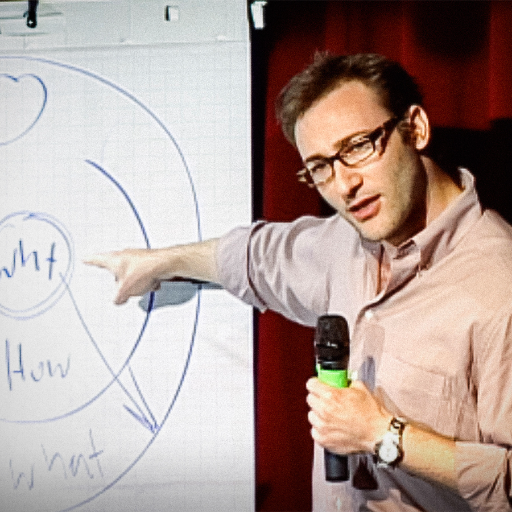Medical GPT-AI research paper summarization tool.
AI-powered medical paper summarization.
논문 번호 2023.11.30.23299243의 요약을 한글로 제공해 주세요.
medRxiv 2023.11.30.23299255 논문을 분석하라
MEDRIX에서 Cardiovascular Medicine 최신 논문을 찾아 설명하라
저자가 J. Shanmugam Subramaniam의 논문을 찾아줘
Related Tools
Load More
Medicine GPT
Ultimate guide for all medical conditions.

Medical GPT
Friendly virtual doctor for broad medical advice.

MedGPT2+
I'm gaslighted by medical students 😎

Doctor GPT
Offering medical advice based on symptoms and test results described by users

医療統計GPT
医療統計GPTは、あなたの研究を支援するために、医療データ分析をサポートします。目標を明確にし、データを検証後、信頼できる統計方法で分析を行います。また使用された統計方法に関連する注意点、およびバイアスのリスクも合わせて提示します。このプロセスを通じ、データ駆動の意思決定を支援し、分析結果を直感的に理解しやすい形で表示します。日本語のグラフ表示にも対応しています。

Dr. GPT
A supportive colleague for discussing clinical cases
20.0 / 5 (200 votes)
Introduction to Medical GPT
Medical GPT is an advanced AI tool tailored to assist users in retrieving and summarizing scientific research papers, specifically focusing on medical and life sciences literature. Built upon the GPT-4 architecture, its core function is to provide users with in-depth analysis, summaries, and insights from various medical databases such as medRxiv, bioRxiv, PubMed Central, and Europe PMC. This tool is designed to assist in parsing the complex, technical language often found in medical research and convert it into more digestible summaries. One of the key features is the ability to analyze articles when given a specific paper identifier (DOI or similar), allowing users to access relevant information quickly. For example, a researcher could input a DOI like '2023.11.30.23299243', and Medical GPT would locate the corresponding article, generate a summary, provide critical insights, and even offer a link to the full paper. Its design purpose revolves around improving accessibility to scientific data, enhancing understanding of research findings, and supporting decision-making in the medical field.

Main Functions of Medical GPT
Summarization of Medical Research Papers
Example
When a user provides a specific DOI or paper number, such as '2023.11.30.23299243', Medical GPT retrieves the paper from databases like medRxiv, generates a concise yet comprehensive summary, and provides the user with essential findings, methodologies, and conclusions.
Scenario
A medical student researching new treatments for diabetes can input a recent study's DOI into Medical GPT. Instead of spending hours reading the entire paper, they receive a detailed summary within minutes, including key takeaways, making their study process more efficient.
Generating Links to Full-Text Papers
Example
After summarizing a paper, Medical GPT provides a direct link to the article's full text (e.g., 'https://doi.org/10.1101/2023.11.30.23299243') so users can access the original document if further details are required.
Scenario
A clinician who needs to quickly reference the full methodology of a clinical trial for decision-making can use Medical GPT to get a summary and then click through to the full paper for more granular details.
Analysis of Research Trends and Themes
Example
Medical GPT can analyze multiple research papers on a given topic, such as 'COVID-19 vaccines,' and provide a synthesized analysis of common findings, discrepancies, and emerging trends across the literature.
Scenario
A healthcare policy analyst evaluating the effectiveness of different COVID-19 vaccines can use Medical GPT to review dozens of studies and quickly understand the overarching trends, helping inform policy recommendations without needing to read each paper individually.
Ideal Users of Medical GPT
Medical Researchers and Academics
Medical researchers, PhD students, and academics benefit significantly from Medical GPT's ability to summarize and analyze papers. The time saved by using automated paper summarization allows them to focus on hypothesis generation, experimentation, and deeper analysis of research data. In particular, those conducting systematic reviews or meta-analyses can use Medical GPT to quickly gather and distill findings from large bodies of literature.
Clinicians and Healthcare Professionals
Doctors, nurses, and other healthcare professionals can use Medical GPT to stay up-to-date on the latest medical research without having to read through dense papers. This is particularly useful when new research on treatments, medications, or patient care practices emerges, as these professionals need quick, evidence-based insights to make informed decisions in clinical practice.

How to Use Medical GPT
1
Visit aichatonline.org for a free trial without login, no need for ChatGPT Plus.
2
Gather the research paper's identifier, such as a DOI or medRxiv number, which you want to analyze.
3
Input the paper's identifier into Medical GPT to retrieve a detailed analysis and summary of the research.
4
Explore additional options to access the full paper, such as a DOI link provided by Medical GPT.
5
Use Medical GPT's summaries and insights to enhance your research, whether for academic writing, literature reviews, or staying informed on the latest studies.
Try other advanced and practical GPTs
Leichte Sprache
AI-powered tool for simplified writing

A's Coder
AI-powered software development assistance

Find Your Purpose / Why > Coachfully.AI
AI-powered purpose discovery for you

Swiss Legal Expert
AI-powered Swiss legal insights

中英口语翻译/English-Chinese Oral Translator
AI-powered English-Chinese language translator
Redakteur Deutsch by AFAIK.de
AI-powered German content editor

LowCapsGPT
AI-driven insights for crypto research.

AI 主任医生
AI-Powered Medical Advice and Guidance

ebay出品最適GPT
Optimize your eBay listings with AI.

CRONOS: Chef & Mixologo v1.8
AI-powered tool for cuisine, desserts, and cocktails

看片之家
AI-powered tool for all your needs

烂俗故事编辑
AI-Powered Dramatic Story Creation

- Literature Review
- Research Analysis
- Academic Support
- Paper Summaries
- Medical Insights
Medical GPT: Frequently Asked Questions
What databases does Medical GPT support?
Medical GPT pulls data from trusted repositories like medRxiv, bioRxiv, PubMed Central, and Europe PMC, giving you access to cutting-edge scientific papers.
How do I use Medical GPT to analyze a specific paper?
Simply provide a valid DOI or medRxiv paper number. Medical GPT will retrieve, summarize, and analyze the key findings of the paper, offering useful insights in a concise format.
Can Medical GPT help me with academic writing?
Yes, Medical GPT can assist in creating literature reviews, summarizing research, and providing relevant studies, which are essential components of academic writing.
Is there a cost to use Medical GPT?
Medical GPT is free to use without any need for subscriptions or ChatGPT Plus. Visit aichatonline.org to get started.
How accurate are the summaries provided by Medical GPT?
Medical GPT provides high-quality, AI-powered summaries based on the latest research data, offering accurate, concise, and reliable information to aid your understanding.